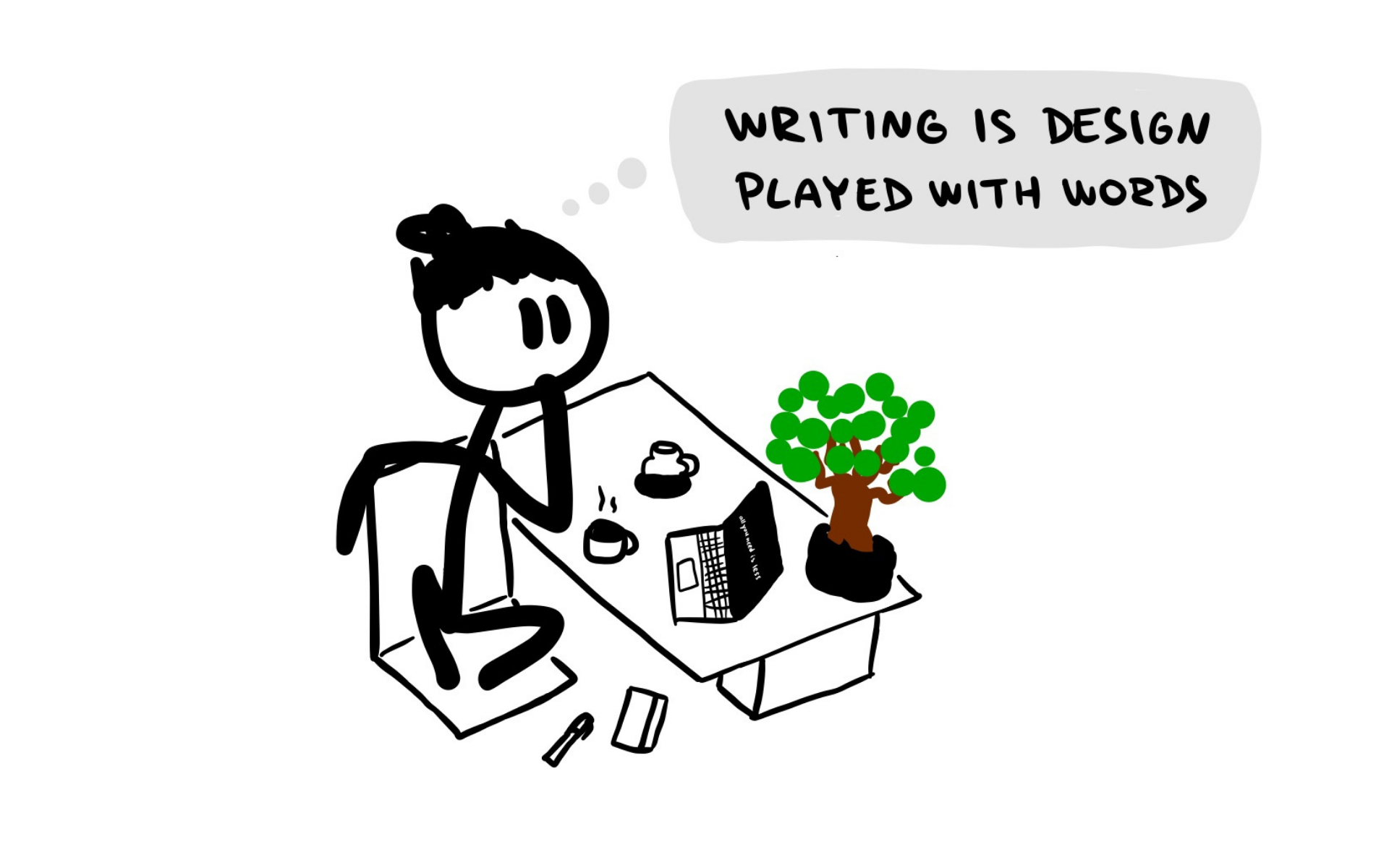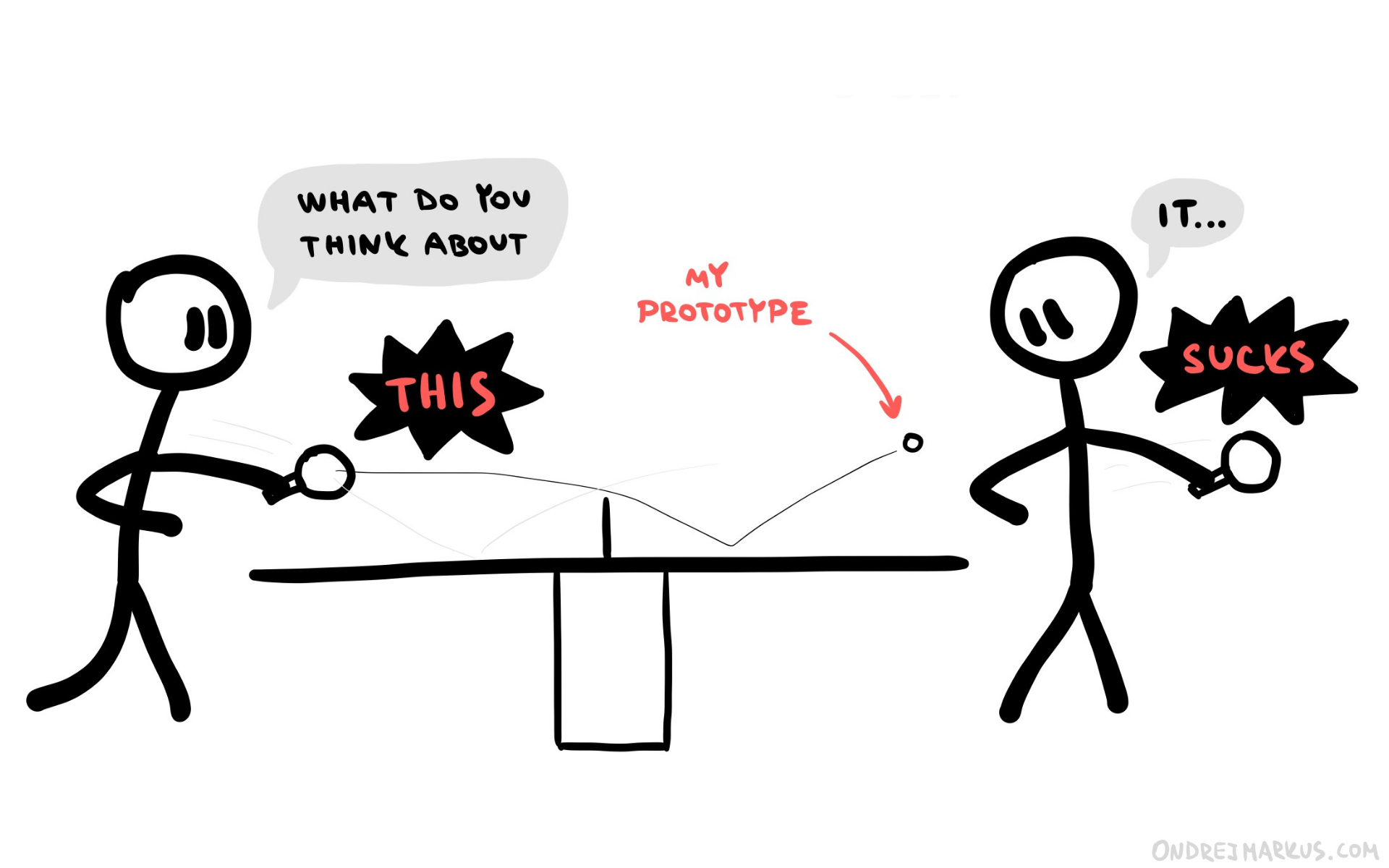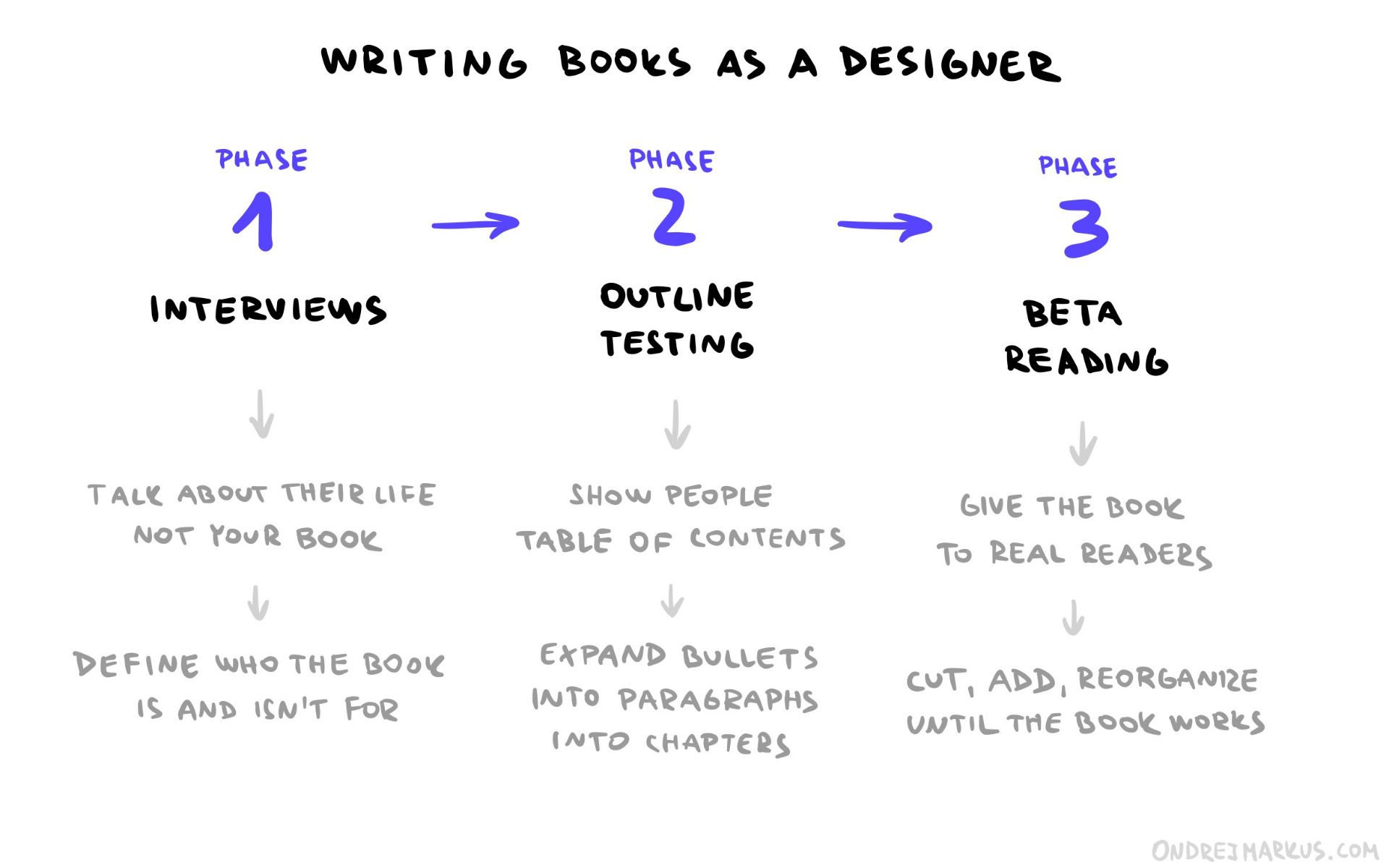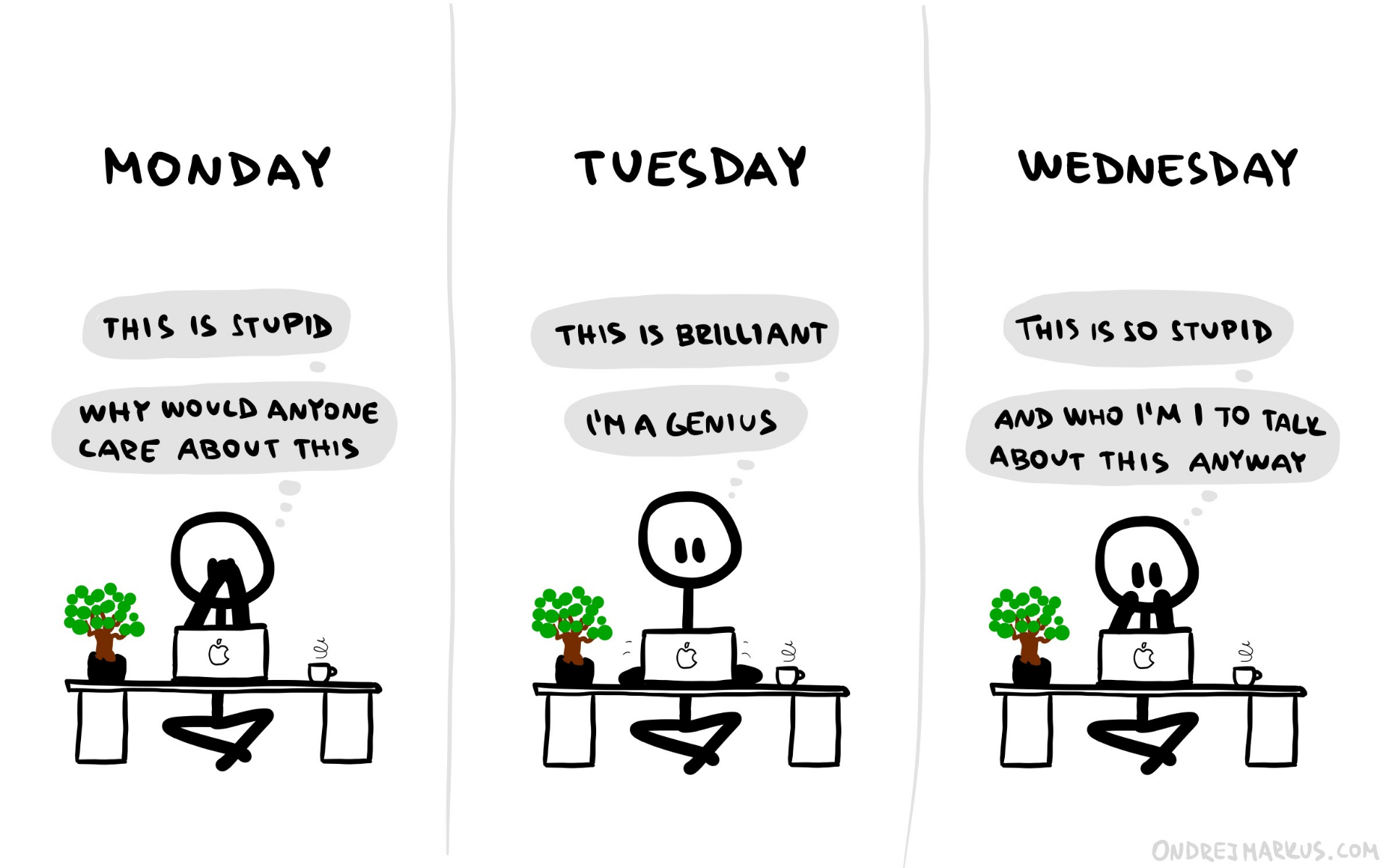Ondrej Markus
Entrepreneur in ed-tech, building the future of education as a founder and CEO at Playful.
I write about the future of education, designing learning games, and running a startup.
I'm a generalist, introvert, gamer, and optimizing to be useful.

#15: How to write books as a designer

Hey there,
I’m still writing a book. #persistence

Almost there…
Writing a book as a designer
Last week, I realized I can write this book the same way I design a product. (Thanks, Rob.)
What does it mean?
It means I’m not going to write this book in secret for 6 months, hoping it’s going to be good. No.
Instead, I’m talking to people since day one to make sure I’m creating something useful. And I’m going to play this writing ping pong until the book is done.

Writing feedback ping pong
This is how it should go:
- Interviews - I’m talking to people about their approach to work, money, and independence to understand different perspectives. The goal is to figure out who the book is and, most importantly, is not for.
- Outline testing - Once I know my reader, I’ll start testing the outline with them. The outline is a list of chapters with a few bullet points of content. It’s a prototype of what the book is about. And as I get feedback, I’ll gradually expand bullets into paragraphs, and paragraphs into chapters.
- Beta reading - Once the word count reaches a few thousand words, it becomes impossible to test it in real-time. I’ll switch to asynchronous testing with real readers – people who expect the book to solve their problems as it is. Based on their feedback, I’ll cut, add, and shuffle things until it works.

Writing books as a designer
The core of this approach is: Don’t write anything long until people enjoy the short version of it.
If nobody is interested in 300 words of your best advice, they probably won’t be interested in 30.000 words either.
Pre-mortem: What will go wrong
These are the 3 biggest potential fuck-ups I see coming.
I choose the wrong concept
In this scenario, I fail the interview phase because I didn’t do enough interviews or asked the wrong questions. Either way, I end up with an unclear definition of who the book is and isn’t for.
How to avoid choosing the wrong concept:
- Do a lot of interviews
- Talk to people outside of my bubble (different values)
- Focus ruthlessly on defining who the book is NOT for
I trade my vision for recognition
Here, I get lost in the amount of feedback I got. I write to please people and to get compliments instead of saying what I want to say. The result is a book people “want to read” but which I never finish because it’s not a book I want to write.
How to avoid trading vision for recognition:
- Continuously ask: What do I want to say?
- Balance feedback with my experiences
I lose confidence
I have a tendency to disagree with myself a lot. Writing is challenging because it forces you to see how little you actually understand the things you’re trying to say.
When I write, half the time I feel like an idiot who doesn’t know anything about anything.

Writer’s week
How to avoid losing confidence:
- Focus on helping people early in the process (the sooner the outline is providing real value for readers, the higher is the chance I’ll maintain good momentum and finish the project)
That’s it for today.
By the way, I’m doing Twitter again. So if you crave more stickman action, it’s over there.
Have a good one.
Bye